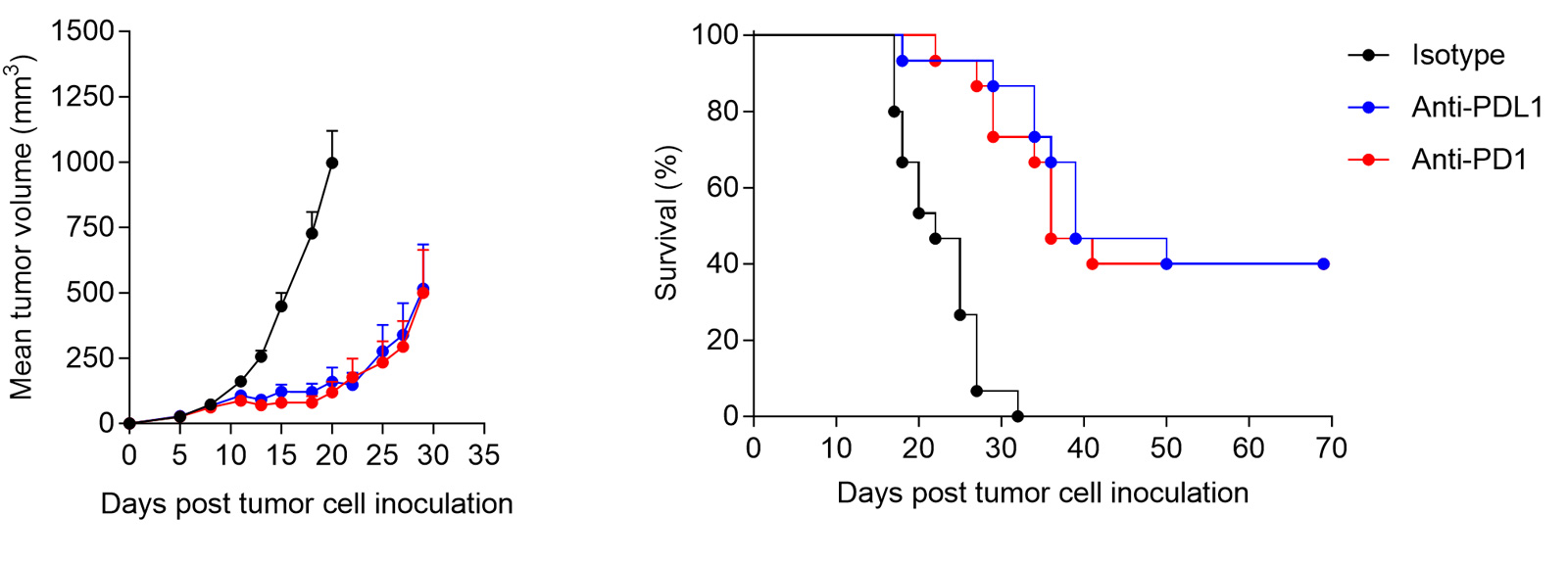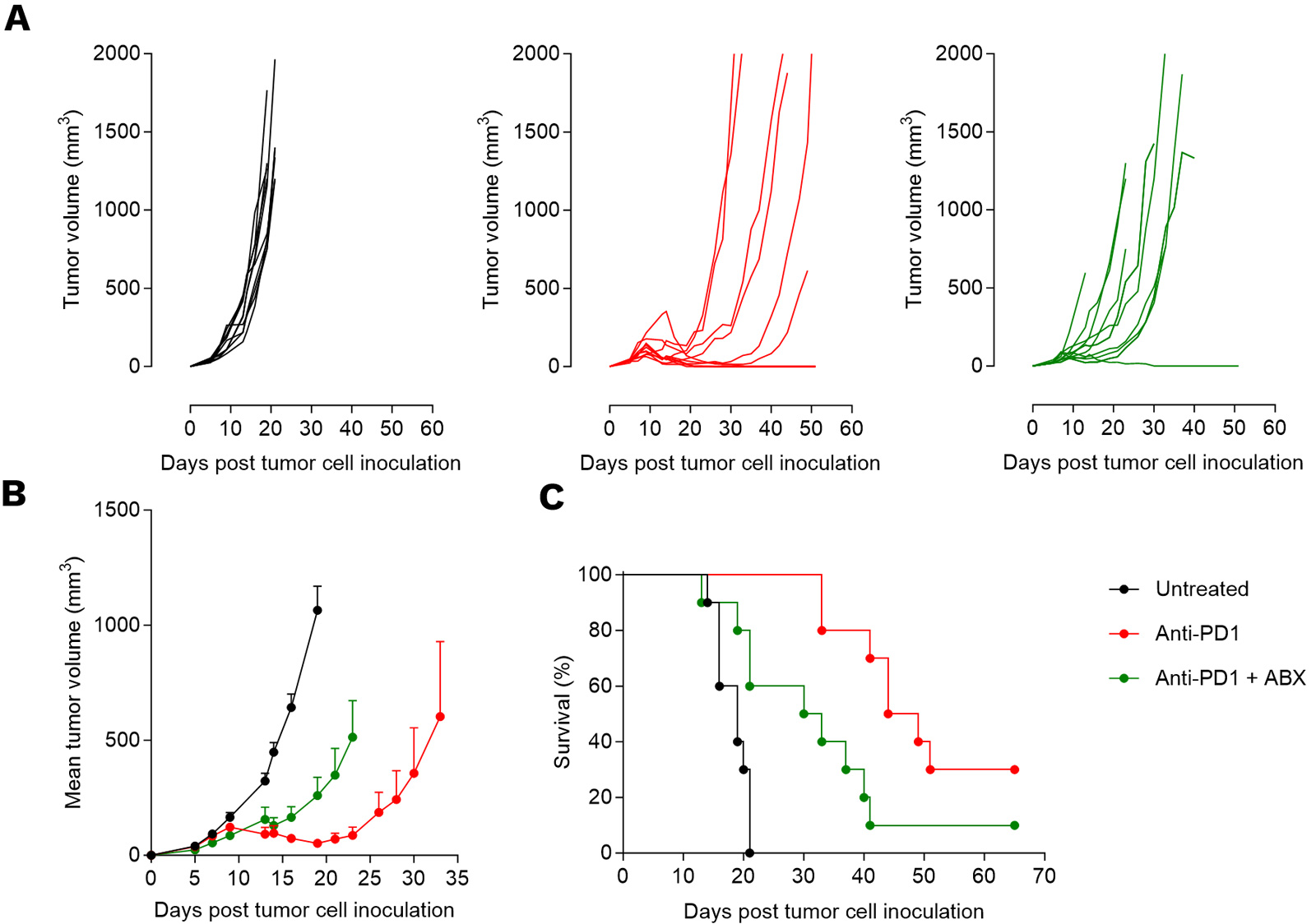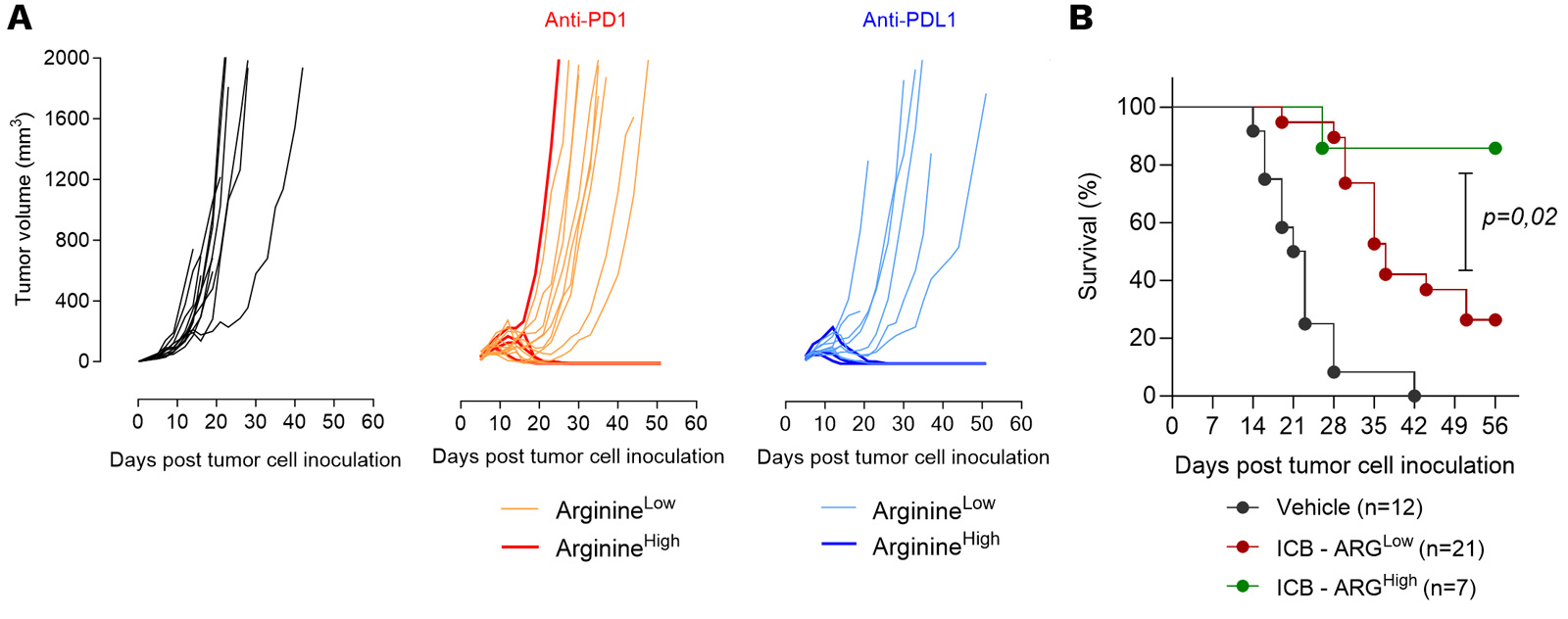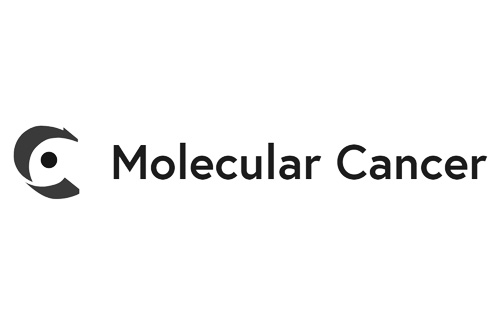-
- Model features: CD8+ T cell-mediated control of tumor growth, MDSCs tumor infiltration
- Tumor cell line: MC38 tumor cells
- Tumor implantation: subcutaneous
- Standards: immune checkpoint inhibitors (anti-PD1, PDL1, CTLA4)
- Readouts: body weight, tumor size, survival

Subcutaneous MC38 colon tumor model is sensitive to PD1/PDL1 axis blockade.
Mice were challenged with MC38 cells and treated with either isotype, anti-PD1 or anti-PDL1 antibodies. Tumor growth and survival were monitored overtime.
In vivo efficacy & mechanism of action studies for novel immunotherapies

Straightforward in vivo efficacy studies
- N=10: Standard groups of 10 mice including groups exposed to test compound alone and in combination with reference therapy.
- Weekly reports: monitoring tumor growth, body weight, and survival

Flexible sampling options
- Monitoring response over time: satellite mice, serial bleeding, intra-tumoral biopsies
- On-demand sample collection: blood, serum, plasma, tumor, organ samples

A flexible platform to quantify tumor-microenvironment & peripheral markers
- Multiplex immunophenotyping by flow cytometry & digital pathology
- Spatial transcriptomics & proteomics
- Tumor microdialysis
Exposure to antibiotics limits response to Immune checkpoint inhibitors
The anti-tumor activity of anti-PD1 is partially abrogated by animal exposure to antibiotics.
Mice were exposed to antibiotics (ABX) and then subcutaneously inoculated with MC38 tumor cells. Treatment with Vehicle and anti-PD1 was initiated on Day 6 and repeated three times. Tumor growth and survival were monitored over time. Individual tumor growth (A), mean tumor volume (B), and survival (C) are presented.

Evated level of Circulating Arginine is associated with sensitivity to Immune Checkpoint Blockers
In 2022, a study conducted by Explicyte, in collaboration with teams from Institut Bergonié (Antoine Italiano) and Gustave Roussy, demonstrated that levels of circulating arginine are associated with the response to immune checkpoint blockers. These results were supported by both clinical and preclinical evidence.
High levels of ARG correlate with ICI-induced tumor regression in a mouse MC38 colon cancer syngeneic model.
(A) Individual tumor growth curves of MC38 tumor-bearing mice treated with either anti-PD1 or anti-PDL1, classified according to their baseline ARG levels as High (bold line) and Low (light line). Arginine levels were measured by ELISA. (B) Kaplan-Meier curve of overall survival upon anti-PD1/PDL1 antibody treatment, categorized by baseline ARG levels and treatment. The p-value was calculated using the log-rank test between ICI – ARG High and Low groups.
Why working with Explicyte?
Experts
in Immuno-Oncology
- 150+ in vivo campaigns conducted over the past 10 years
- 30+ peer-reviewed publications in key immuno-oncology journals
- Bespoke study designs based on client objectives and literature
Personalized
approach
- A dedicated study director (PhD level) from experimental plan to final report
- Weekly reports to provide regular updates & adapt experimental strategy
- Comprehensive analytical platform to decipher anti-tumor response
Your contacts

Talk to our team !
Paul Marteau, PharmD (preclinical study director), Imane Nafia, PhD (CSO), Loïc Cerf, MSc (COO), Alban Bessede, PhD (founder, CEO), Jean-Philippe Guégan, PhD (CTO)












